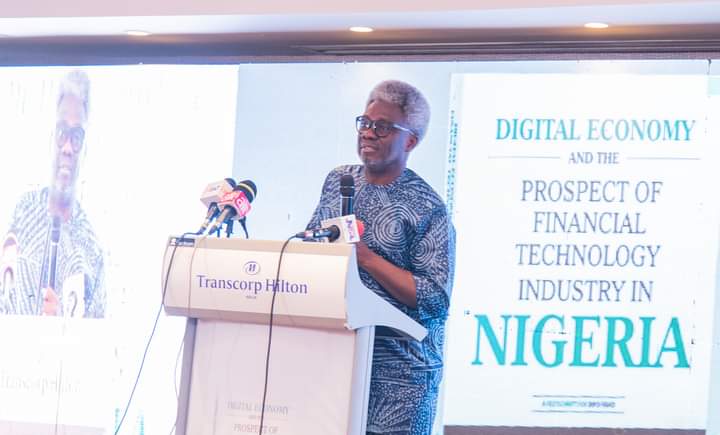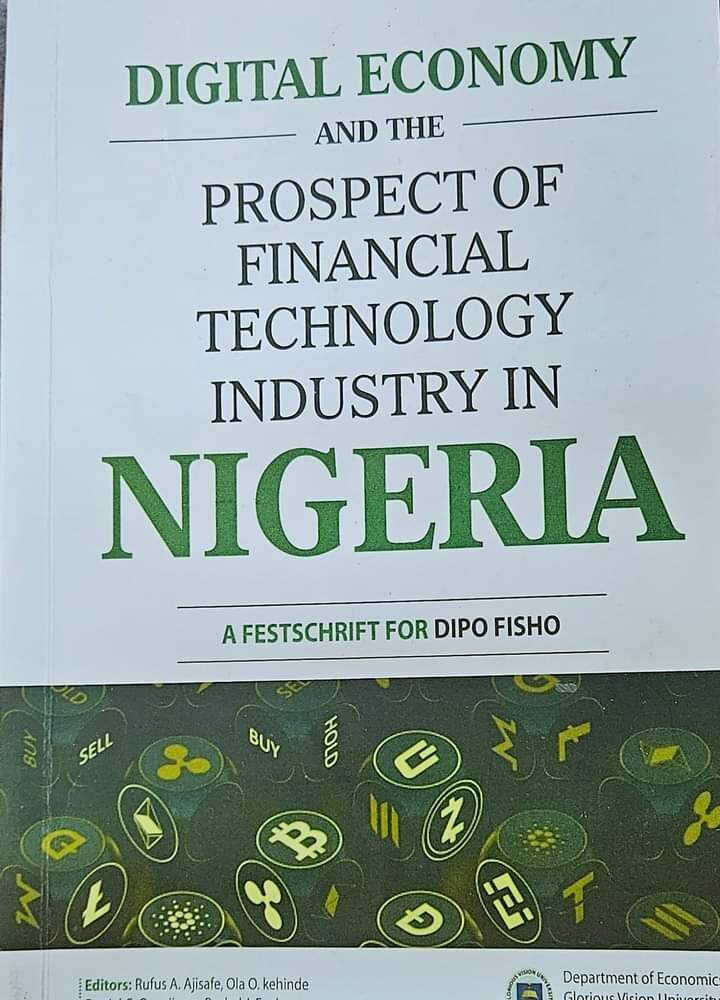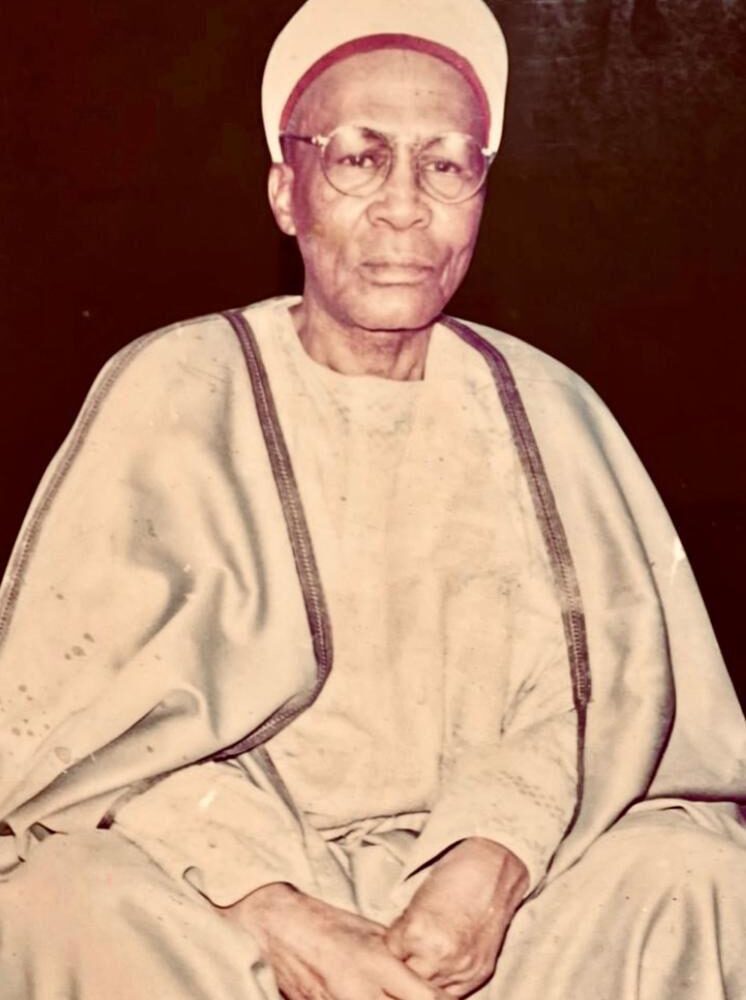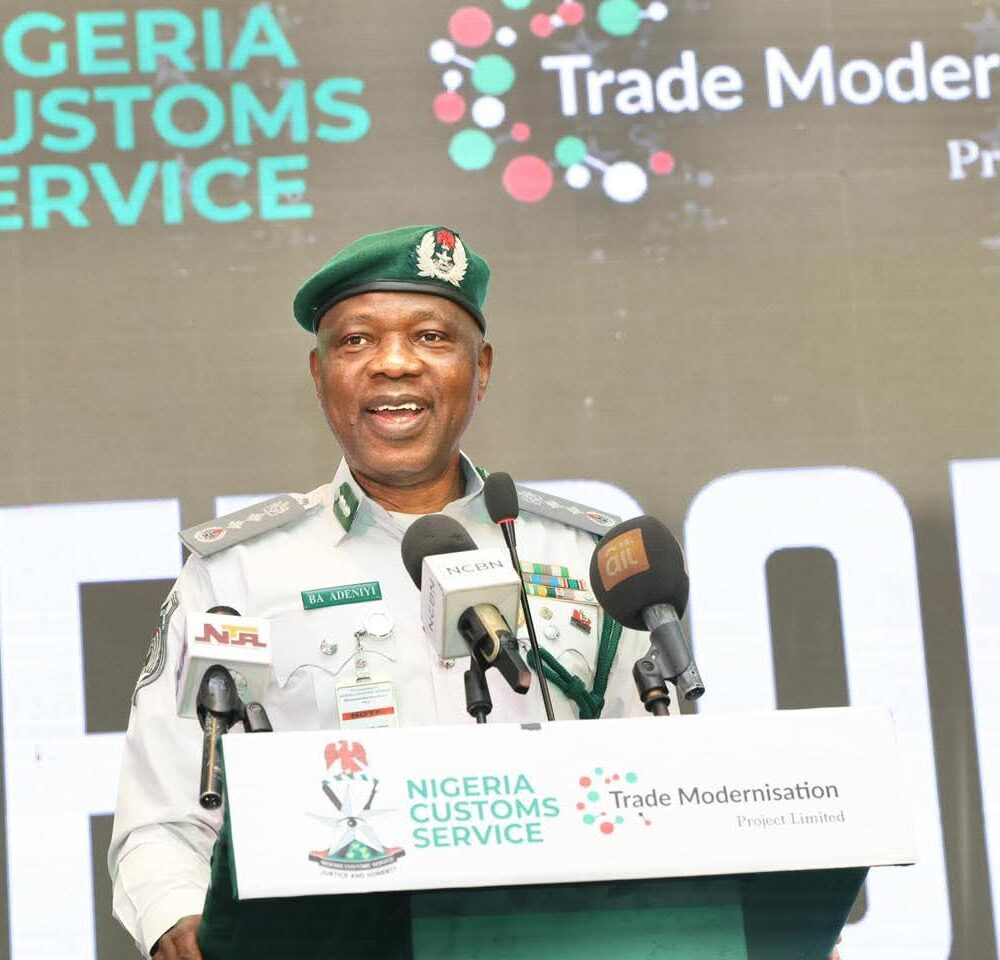Introduction
The emerging possibilities of the Fourth Industrial Revolution (FIR), as central organizing principles of contemporary society, have been astonishing in their revolutionary bearings. I told some 150 people as the official reviewer of the above cited book during its public presentation at noon on Saturday, February 10, 2024, at Borno Hall of the Transcorp Hilton Hotel, Abuja. As a contrarian to absolute technological determinism theories, I asserted that it is intrinsic and implicit that the driving force of modern innovation is not just the technology but the interface of technology and the human agency. In other words, the notion of digital economy and other signposts of communication technology revolutionary uptake, essentializes the duality of structure – technology and the human agency – in remaking or advancing the society.
The centrality of the human agency, particularly the role of culture as an arbiter, in driving the digital economy is underscored by people like Tim John Berners-Lee and our own, Dipo Fisho, whom the book was published to honour. Fisho trained as a mechanical engineer at Edo State University and worked with leading construction firms, including Julius Berger, for a decade before going to Hertfordshire to earn a master’s degree in project management with a focus on Payment and Information Technology.
Acknowledged as a leading Afrocentric change agent in the utilization of digital technology, Fisho is a torchbearer in the payment technology space. For five years he worked with Brinq Africa Payment Limited until he founded QuickPay Digital Solutions Limited, through which he has deployed many payment applications, including QuickPay App, QuickPay JED App, QuickPay EEDC App QuickPay APL App and QuickPay KEDCO App. These came after he had successfully built some 15 enterprise solutions or applications while at Brinq Africa Payment Limited. Like M-Pesa in Kenya, millions of people have continued to use Fisho’s QuickPAY app to top-up electricity credits. By all stretch of contention Fisho’s contribution to the financial technology (FINTECH) industry in Nigeria is seminal and profound.
The Book – Digital Economy and the Prospect of Financial Technology Industry in Nigeria – is a reader, an anthology of good writings on fundamental themes of digital economy. The book is edited by four intellectually agile scholars led by Prof. Rufus Ajisafe, Head of Department of Economics at Obafemi Awolowo University, Ile Ife. The other editors, Dr. Ola Kehinde, Dr. Daniel Onyejiuwa and Doctoral Fellow Rachel Fagboyo are of the Department of Economics at Glorious Vision University (formerly Samuel Adegboyega University), Ogwa, Edo State – a tertiary institution of The Apostolic Church Nigeria.
Some thirty contributors, including Fisho, the Vice Chancellor of Glorious Vision University (publishers of the book), scholars and professionals beyond Nigeria, have penned down their thoughts under different relevant themes and in acceptable scholastic traditions that speak to the essence of digital economy and financial technology. Among them is my very dear younger brother and colleague, Kunle Olorundare, an engineer and Principal Manager at the Nigerian Communications Commission.
In conceptualizing digital economy, the book offers tens of other definitions advanced by a galaxy of authors and contends that digital economy can also be defined by measurements based on the framework developed through the UN Statistical Commission. This conception, which I find quite useful, and explanatory could focus on products, production, and transactions. The product dimension would include ICT goods trade in terms of smart items (phones, computers, other appliances), ICT services trade (online banking and other financial services, Zoom or Teams meetings, lectures, online customer care), ICT enabled service trade that are digitally delivered such as bookings, sales, and online payments. The production dimension would entail ICT sector (employment and other value-addition such as telecom industry, social media, and others), and ICT usage in business (substantial reliance of other sectors on ICT processes). The third measurement would encompass transactions (e-commerce (online transactions) and e-business (all web-based services generating revenue or other non-financial benefits), as well as e-governance, e-marketing, e-media and so on.
Nevertheless, the pivot of conception is that these practices have been enabled by computing and the Internet, thereby guaranteeing real time access to information and informational resources such as apps, digital wallets and assortment of mobile solutions. Therefore, financial technology (FINTECH) are those apps, software and technologies that are automated to enable individuals, business owners, corporations, institutions and governments to manage and improve their financial activities more efficiently.
Besides its 27 preliminary pages, which are also spiked with valuable information, this is a 404-page book organized in four thematic foci (Digital Economy, Fintech Industry, IT and New Technology, and Data Science). These four sections are unbundled in 25 chapters. In those 25 chapters, various contributors submitted key conceptual clarifications, as well as key elements in the digital economy ecosystem that constitute enablers of Fintech and the features of modern society that signpost digital economy, including mobile banking, robotics, blockchain technology, cryptocurrency, big data, the Internet of Things (IoT), online commerce and distribution, social media and numerous electronic activities in the spheres of education, agriculture and health, among others. The World Bank taxonomy of foundational pillars of digital economy was put in context within the framework of Digital Economy for Africa (DE4A) namely: digital infrastructure, digital platforms, digital financial services, digital entrepreneurship, and digital skills. We gleaned from the book about how Covid-19 strengthened digital economy globally. This underscores extant literature and experience we all directly encountered.
Barter, money – evolution, implications up to the integration of the Nigerian economy with the British imperial economic structure, cashless policy in Nigeria – the recent ill-advised and disastrous redesign and demonetization of the Naira, cryptocurrency, cryptoassets, metaverse, bitcoin and all forms of computer-generated currencies, cloud accounting, cybercrime and cybersecurity, as well as the value of data and their implications for business operations, growth and development were treated in the book in objective contexts.
Fisho himself reminded us that three of the four Continental unicorns – Flutterwave, Opay and Andela – are Nigerian in origin. He documented the birth of new banking models targeted at the unbanked and enhancing access to financial solutions by those in unserved and underserved areas of Nigeria. Citing Ernst & Young (2020), Fisho stated that the payment sub-sector experienced the fastest growth, representing 38 percent of market solutions, and there is cause for optimism in the future. One reason is niche-focused players such as the emergent platforms where he referenced “platforms empowering the education sector to increase access to student loans, grants, and payments to educational institutions.”
As an employee of the telecom regulator, I am also delighted to note that MTN and Airtel foray into financial services is in the scope of this book. Likewise, the imperative of regulation and institutional frameworks as well as collaboration cannot be over-emphasised. As the book evidenced, the Nigerian Financial Inclusion Strategy would not have been a success nor taken off without the collaboration of CBN and NCC. Importantly, harnessing technology on all fronts increases Nigeria’s capacity to provide employment and empower the citizenry, particularly the young people who are more prone to exploitation and manipulation in ways that undermine national security.
In concluding, I asserted that by virtue of being Africa’s most populous country, its largest market, and accounting for almost a third of the Continent’s Internet usage, Nigeria’s e-commerce spending is projected to hit $75 billion dollars by 2025 – just next year. Two years ago, the digital economy’s contribution to Nigeria’s GDP was approaching 20 percent. In a recent initiative I carried out for the global office of Mastercard Foundation, I cited these evidence-based statistics and asserted that these figures, as they speak to projection and accomplishment, could be an underestimation, given the multiplier effect, cross sectoral or multisectoral marks of digital economy. Objectively, there are points within sectors that are not fundamentally tech-driven and therefore not captured. We need to identify them and get them to leverage technology. A major concern is increasingly low level of foreign direct investment. Do we have alternate sources of funding seminal infrastructure projects? We need to put on the thinking cap to see how to get funds to invest in areas requiring such, like expansion of digital infrastructure.
The last question was partly envisioned in Pillar Two of the extant National Digital Economy Policy and Strategy (NDEPS) 2020-2030. Thankfully, the NDEPS resonates in a more concrete, pragmatic sense with the strategic blueprint released in October 2023 by the Honourable Minister of Communications, Innovation and Digital Economy, Dr. Bosun Tijani, who, in centralizing knowledge as an organizing principle, is taking the bull by the horn. After all, a digital economy can only be as animated as the pattern and degree of literacy of its citizens, and it is so gratifying that Dr. Tijani gave expression to the centrality of literacy and empowerment with the ongoing Three Million Technical Talent (3MTT) programme through which Nigeria will reflate its human capital development and export digital talents. I believe Nigeria will surpass the target if we activate the implementation of the National Digital Literacy Framework 2023.
Suffice it to say that we need to organize afresh, engage more strategically, and collaborate. In other words, the Nigerian Government and the Honourable Minister need all the support. As my boss, the EVC/CEO of NCC, Dr. Aminu Maida, who was the chairman of the occasion has said repeatedly, we should be decidedly dedicated to the implementation of Minister Tijani’s strategic plan, tagged, ACCELERATING OUR COLLECTIVE PROSPERITY THROUGH TECHNICAL EFFICIENCY. We all have roles to play. Without citizens participation there will be no development.
Therefore, whoever has imposed any barrier on his or her ability to comprehend what FINTECH is, as well as its value both as a requirement and an index of growth and development, should get a copy of this book, read, and process it. Despite the extant challenges, the impact of FINTECH in Nigeria’s emergent digital economy sector has been astonishing across all sectors. I, therefore, recommend this book to all who seek information, knowledge and real development of Nigeria’s economy and the role of the human agency should play to bring it to reality.
The complete review has been published in MEDIUM and Premium Times. They are accessible through the links below.
https://medium.com/@nuttyniyi/digital-economy-and-the-prospect-of-financial-technology-industry-in-nigeria-a-festschriftdipo-da0d725f06be
https://www.premiumtimesng.com/opinion/668566-the-digital-economy-and-prospects-of-fintech-in-nigeria-by-omoniyi-ibietan.html






